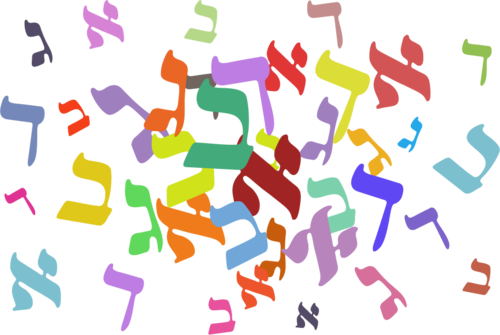More Than a Name
12/09/2019 10:16:05 AM
Rabbi Boris Dolin
| Author | |
| Date Added | |
| Automatically create summary | |
| Summary |

Walking around with a name like Boris has gotten me in a lot of trouble. Even in the US, a country with a diversity of people and an equal diversity of names, my name always stood out. Upon hearing my name, people would often assume that I was born in Russia and was fluent in Russian. Even after studying the language in University and learning (if nothing else) to say clearly “Really, I do not speak Russian well,” not everyone was convinced. I was Russian, whether I liked it or not.
When my family moved to a new city and we were registering for school, I had the opportunity to change my name and choose something more common. I nearly did, but I think my life might have been very different if I had done so. Upon reflection I know that this name also carried with it something more meaningful than the sounds of its letters. My name also connected me with the memory of my grandfather, who was born in Lithuania, and was a strong and visible reminder of my heritage, my ancestors and my Jewish roots. There was no running away from this part of my past and identity, and in some ways I think my name might have even been part of what inspired me to later become a rabbi. Above all, I am glad I held on to Boris.
The power of names figures prominently in this week’s parsha. Preparing to meet his brother Esau, we read how the patriarch Jacob has a wrestling match with an angel of God, and receives a new name because of this life changing experience. The angel tells him: “Your name shall no longer be Jacob, but Israel, for you have striven with beings divine and human and prevailed”(Gen. 32:29). This name change is more than simply a change in letters, it is a profound message about Jacob’s growth and his purpose in life. According to the Torah, Jacob was named from “ekev,” heel, because his life began holding onto his brother’s foot, a prediction to the sibling rivalry and challenges in their family, much of which was instigated by Jacob himself. But now, after wrestling with the angel, Jacob becomes Yisrael, a “God wrestler,” a name which signifies maturity and the growth that has taken place in Jacob’s life. No matter how we look at it, after he receives his new name, Jacob is no longer the same.
Yet it is strange that even after this profound and life changing experience, the Torah again refers to our patriarch as Jacob: “So Jacob named the place Peniel, meaning, I have seen a divine being face to face, yet my life has been preserved” (32:31). Why describe such an incredible experience, so specifically describe the origin of this new name, and then use the old name again?
This is an important message about the ways that we are changed by the experiences in our lives, and how we need to find a way to confront our past even as we tread new paths. Even as we undergo these changes, whether it is moving to a new city, leaving an old partner or searching for a new one, or converting to a new faith, we can never fully leave our old selves behind. We try our best to create a new life, to move on from the experiences of the past, and often we can be quite successful in this task. What we might gain from these changes are an entirely new way of looking at the world, and a new understanding of what is important in our lives. But our past, and the “names” we once had will always be part of who we are. The challenge is to find the best way to hold onto them even as we leave them behind.
Later in the Torah we read Balaam’s blessing to the Jewish community, the same one with which we open our morning service: “Mah tovu ohalecha Ya’akov, mishkenotecha Yisrael”. This blessing to the Jewish people is offered using both of Jacob’s names: “How good are your tents oh Jacob, your dwellings oh Israel”(Numbers 24.5). This choice of both names is quite purposeful.
As Jews we take pride our name as Israel “wrestlers with God”, but we also remember what came before we had this name. The people Israel, the name Israel, was once simply “Jacob”, a child wandering and trying to make sense of his family and his life. And even as Jacob has grown into a new and more spiritually strong leader, into Israel, his can never separate himself from his former name.
The same is true with us. We will always have regrets about who we were or what has happened in our lives, and unfortunately there is no way to ever clear our past fully from all the pain and challenges which we have experienced. Yet if we can see these “names” as instead stepping stones to better place, as opportunities for growth and learning, then we can more readily move ahead . It may be difficult to reach this place of acceptance, and we may not be there yet, but we know that the most profound change is possible if we give it time.
“Have regard for your name,” writes Ben Sira, “since it will remain for you longer than many stores of gold.”
Even if we don’t have much that is for sure in this world, we have our names. So let’s hold onto them with pride.
Congregation Dorshei Emet - 18 Cleve Rd., Hampstead, QC, H3X 1A6 - 514-486-9400
Home - About Us - Contact - Disclaimer
Privacy Settings | Privacy Policy | Member Terms
©2025 All rights reserved. Find out more about ShulCloud



